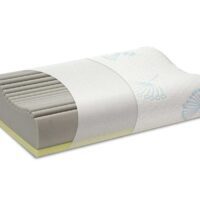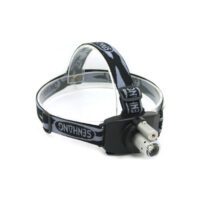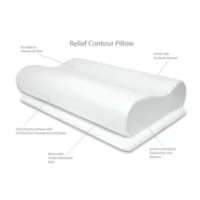Headache, Neck and Jaw Pain
Article by John Miller

Relief at Your Fingertips: Physiotherapy for Headache, Neck, and Jaw Pain
Headache, Neck, and Jaw Pain: Your Path to Relief
Dealing with headache, neck, and jaw pain can significantly disrupt your day-to-day activities and overall quality of life. Fortunately, physiotherapy offers a beacon of hope. With a focus on these common yet debilitating issues, physiotherapists provide expert care designed to tackle the root causes of your discomfort and guide you towards lasting relief.
Understanding the Connection
The intricate relationship between the neck, jaw, and head means that pain in one area can lead to discomfort in the others. This interconnectedness is key to understanding why a comprehensive approach to treatment is essential. Whether it’s tension headaches stemming from neck strain or TMJ dysfunction contributing to jaw and headache pain, pinpointing the underlying cause is the first step on your healing journey.

Physiotherapy: A Tailored Approach
Physiotherapists excel in diagnosing and treating conditions related to headache, neck, and jaw pain. By conducting thorough assessments, they pinpoint the specific factors contributing to your pain. This meticulous approach allows for the creation of a personalised treatment plan, encompassing a variety of techniques such as manual therapy, exercises, and advice on posture and ergonomics.
Immediate Relief and Long-term Solutions
The aim of physiotherapy is not only to offer immediate relief but also to provide long-term strategies to prevent recurrence. Through a combination of hands-on treatment and education, patients gain the tools to effectively manage their condition. This dual focus ensures both short-term comfort and a sustainable path to wellness.
Empowerment Through Partnership
A key aspect of physiotherapy is the collaborative relationship between therapist and patient. Working together, you’ll gain a deeper understanding of your body’s needs and how to maintain optimal health. This partnership is pivotal in empowering you to take an active role in your recovery and prevent future episodes of pain.
What to Do?
If you’re struggling with persistent headache, neck, or jaw pain, seeking the expertise of a physiotherapist is a crucial step. With their guidance, you can embark on a treatment journey tailored to your specific needs, unlocking the door to improved health and wellbeing.
Conclusion
Living with headache, neck, and jaw pain can feel overwhelming, but it doesn’t have to be a permanent part of your life. Physiotherapy offers a holistic and effective pathway to relief, blending expert care with personalised treatment plans. By addressing the root causes of your pain and equipping you with the knowledge and tools for prevention, a physiotherapist can help you achieve a pain-free, vibrant life.
Your Next Steps
Take action today by consulting a physiotherapist who specialises in headache, neck, and jaw pain. Together, you can create a comprehensive plan that addresses your pain from every angle, ensuring a swift return to health and happiness.
This focus on headache, neck, and jaw pain not only illuminates the path to recovery but also highlights the importance of expert care in overcoming these challenges. Remember, with the right support and treatment, you can reclaim your comfort and enjoy a life free from pain.
Rochedale - Call 38410277
Book Online: RochedaleSalisbury - Call 32751044
Book Online: SalisburySandgate - Call 32691122
Book Online: SandgateHeadache, Neck & Jaw Pain FAQs
1. Can Neck Pain Cause Jaw Pain and Headaches?
Yes, neck pain can indeed lead to jaw pain and headaches. This often occurs due to referred pain, where issues in the cervical spine or muscular tension in the neck affect the temporomandibular joint (TMJ) or trigger headache symptoms, such as tension headaches or cervicogenic headaches.
Read more:
2. What Does it Mean When You Have a Headache and Your Jaw Hurts?
If you’re experiencing both a headache and jaw pain, it might indicate TMJ dysfunction, tension headaches, or even referred pain from the neck. These symptoms suggest that the muscles and joints in the jaw and neck aren’t functioning properly, leading to pain.
Read more:
3. What Does a TMJ Headache Feel Like?
A TMJ headache often feels like a tight, pressing pain around the temples or forehead. It may worsen when you move your jaw or when you wake up, due to clenching or grinding teeth at night. The pain can also extend to the neck and shoulders.
Read more:
4. What Headache Radiates into the Jaw?
Cluster headaches and migraines can sometimes radiate into the jaw. TMJ dysfunction can also cause a headache that feels like it’s radiating from the jaw upwards, as the muscles and nerves affected are interconnected with those in the head.
Read more:
5. How Do I Get Rid of Jaw Pain and Headache?
Treatment involves addressing the root cause. Physiotherapy, relaxation techniques, proper posture, and sometimes dental interventions for TMJ dysfunction can help. Applying heat or ice, practising jaw exercises, and avoiding excessive jaw movements can also provide relief.
6. When Should I Worry About Headaches and Neck Pain?
Persistent headaches and neck pain, especially if accompanied by symptoms like dizziness, visual disturbances, severe stiffness, or fever, warrant immediate medical attention. These could be signs of serious conditions such as meningitis, arterial dissection, or high blood pressure.
You should seek professional advice if your neck and jaw pain is persistent, worsening, or accompanied by other symptoms like difficulty swallowing, opening your mouth, or unexplained weight loss. These could be signs of a more serious underlying condition.
Read more:
7. What Does a Headache from Meningitis Feel Like?
A headache from meningitis is typically severe and unlike any other headache you’ve experienced. It often comes on quickly, can be accompanied by neck stiffness, fever, confusion, vomiting, and sensitivity to light. It requires immediate medical attention.
8. What Does an Aneurysm Headache Feel Like?
An aneurysm headache is often described as the “worst headache of your life.” It comes on suddenly and can be extremely severe. It may be accompanied by nausea, vomiting, a stiff neck, or changes in consciousness.
9. Why am I Getting Headaches Every Day All of a Sudden?
Sudden daily headaches could be due to stress, dehydration, caffeine withdrawal, poor posture, or eye strain. However, it’s crucial to consult a healthcare professional to rule out more serious conditions like chronic migraines or hypertension.
10. What are Red Flags for Neck Pain?
Red flags for neck pain include significant trauma, weight loss, fever, night sweats, numbness, weakness, changes in bowel or bladder control, or a history of cancer. These symptoms require immediate medical evaluation.
For personalised advice and treatment, consulting a healthcare professional is always recommended.
Related Articles
- Neck Headache: Offers an in-depth look at cervicogenic headaches, including symptoms and treatments.
- Tension Headache Relief: Symptoms, Diagnosis, and Treatment: Explains the causes of tension-type headaches and how physiotherapy can help manage them.
- Cluster Headaches – Understanding And Managing The Pain: Dives into the specifics of cluster headaches, their intense symptoms, and the role of physiotherapy in their management.
- Wry Neck – Causes, Symptoms, and Treatment Strategies: Discusses common causes of neck pain, including wry neck, and treatment options.
- What’s Causes Cervicogenic Headache?: Outlines the treatment strategies for cervicogenic headaches, focusing on manual therapy and exercises.
- Severe Headache Symptoms: Urgent Red Flags & Care: Highlights important information about recognising serious headache symptoms and the appropriate actions to take.
- Migraine: Provides insight into migraines, discussing diagnosis, and physiotherapy’s role in managing migraine symptoms.
- Neck Strengthening – What Specific Exercises To Do & Why: Offers guidance on exercises to strengthen the neck and improve posture.
- Vestibular Migraine: Shares information on managing vertigo and dizziness, which can accompany migraines.
- TMJ Dysfunction (TMD): Symptoms, Causes & Physio Care: Discusses how physiotherapists and dentists can assist with TMJ issues, highlighting preventive measures and treatments.
- TMJ Headache: Discovering the classic symptoms of a jaw origination TMJ headache.

































































